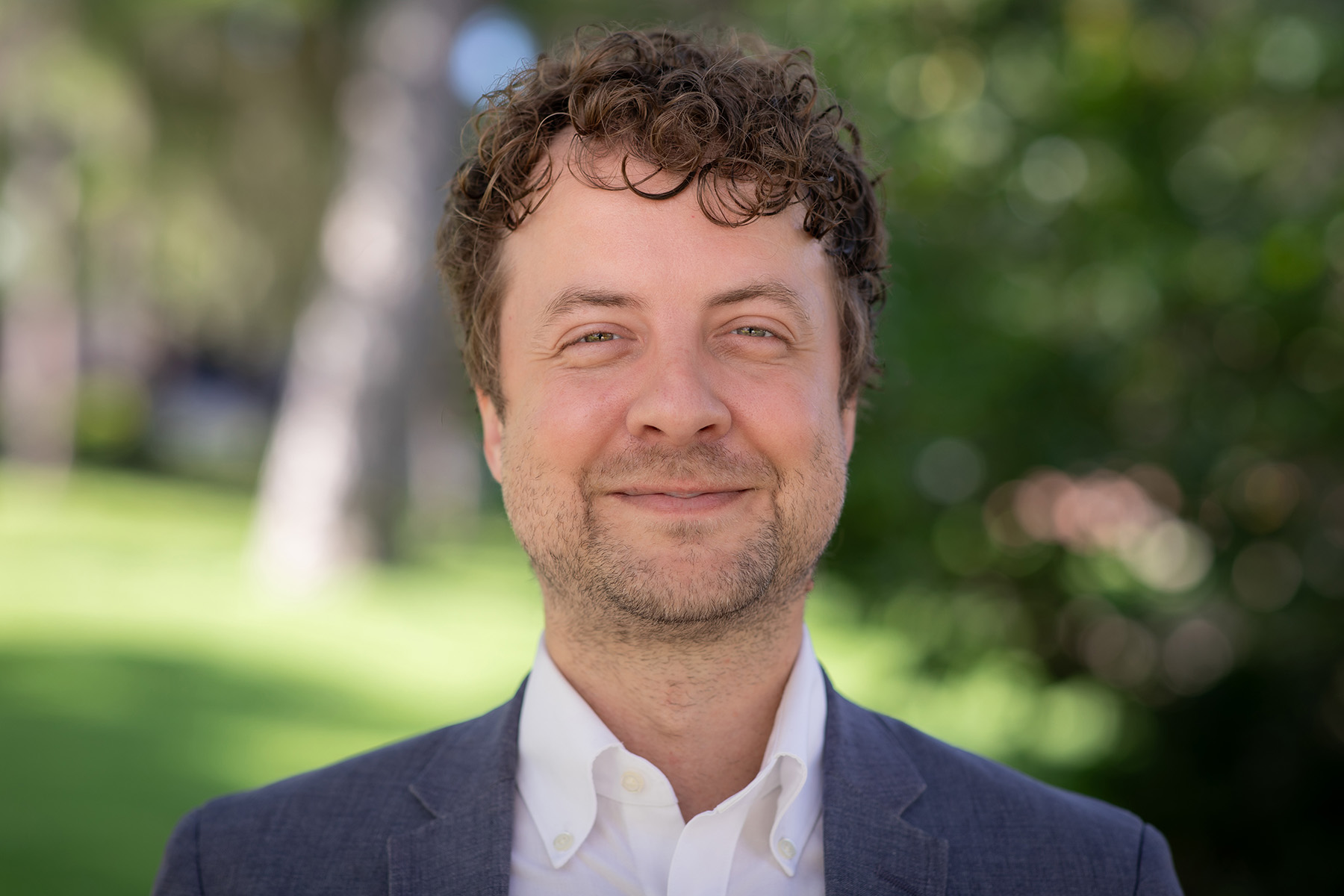
A Florida State University faculty member has earned two competitive humanities fellowships totaling almost $50,000 to investigate the evolution of poetic techniques in ancient and modern Greek poetry.
Assistant Professor of Classics Stephen Sansom has been elected a Fellow in Hellenic Studies at Harvard University’s Center for Hellenic Studies in Washington D.C., and elected a National Endowment for the Humanities Fellow (NEH) at the American School of Classical Studies at Athens, Greece (ASCSA).
The fellowships, which take place in the 2024-2025 academic year, will support Sansom’s exploration of how the ancient Greeks used language to tell old myths in new ways and what that means for Greek storytelling and oral tradition today.
“It’s the ideal scenario to study the ancient Greek world, with access to a community of scholars and world-class libraries. I couldn’t be happier to show the world how we can make new discoveries, even about poetry that we’ve been reading for 2,600 years.”
— Stephen Sansom Assistant Professor of Classics
“It’s an honor to receive these fellowships,” said Sansom, who specializes in early Greek poetry and its reception and digital humanities. “It’s the ideal scenario to study the ancient Greek world, with access to a community of scholars and world-class libraries. I couldn’t be happier to show the world how we can make new discoveries, even about poetry that we’ve been reading for 2,600 years.”
Sansom is one of 19 fellows elected to this year’s cohort at the Center for Hellenic Studies, which welcomed its first group of fellows in 1961. The field of Hellenic studies focuses on the ancient Greek world and includes studies in Greek history, language, literature and culture as well as the lasting influence of the ancient Greek world.
Emphasizing collaboration and interdisciplinary approaches, the center annually elects a group of fellows to support research on topics related to ancient Greece and explores the evolution of the Greek language and culture as a pivotal influence across diverse civilizations in the ancient Mediterranean world.
Since its inception in 1994, the NEH Fellowship program at ASCSA has hosted two to four scholars per year whose work reflects distinguished careers in the humanities. The fellowship provides critical resources for American scholars in Greek language, literature, history, archaeology, philosophy and art from pre-Hellenic times to the present.
“In Athens, I’ll have access to some of the best research holdings in the world,” Sansom said. “I’m looking forward to examining materials that you just can’t find anywhere else like original, rare publications of Byzantine texts from the 17th century.”
Sansom is only the third FSU faculty member to receive the Harvard fellowship since 1999, following associate professor of classics Virginia Lewis in 2017. He is the second faculty member to be awarded the ASCSA fellowship, following classics professor James Sickinger in 2018.
“Dr. Sansom’s appointment to these two fellowships shines a spotlight on the department by showcasing the groundbreaking work our outstanding faculty members undertake,” said Tim Stover, professor and chair of the FSU Department of Classics. “Dr. Sansom is an innovative thinker who is most well deserving of these awards. He will be an excellent ambassador for the department.”
At the Center for Hellenic Studies, Sansom’s project, “Patterns of Expectancy in Greek Epic: Between Computation and Close Reading,” will explore how language usage developed for the Greek epic from approximately the eighth century BCE to fifth century CE. He will use computer software to analyze language patterns in ancient Greek epics such as the Iliad and the Odyssey, looking for trends that otherwise may have escaped notice by scholars not immersed in the nuances of poetry like an ancient listener would have been.
In Athens, Sansom will conduct a comparative study between techniques used in modern and ancient Greek poetry, analyzing a collection of modern recordings from western areas of Crete, Greece’s largest island, and comparing the techniques used in modern Greek poetry with those of ancient Greek improvisational techniques.
“Modern Greek poetry is often improvised, created in the moment, using the same kind of rhythm you might find in Byzantine or Cretan Renaissance poems,” Sansom said. “For example, you might need to quickly make up a funny poem about the person sitting next to you at a wedding feast. I’m working with an archive of recordings and interviews of this kind of poetry and comparing it with the techniques used to create ancient Greek poetry.”
Sansom earned his doctorate in classics, language and literature from Stanford University in 2018 and was a postdoctoral associate in classics and a fellow in the Active Learning Initiative at Cornell University prior to joining FSU’s classics faculty in 2022. His research has appeared in the American Journal of Philology, Classical Philology and TAPA, the official research publication of the Society for Classical Studies, among others.
To learn more about Sansom’s work and research in FSU’s Department of Classics, visit classics.fsu.edu.



